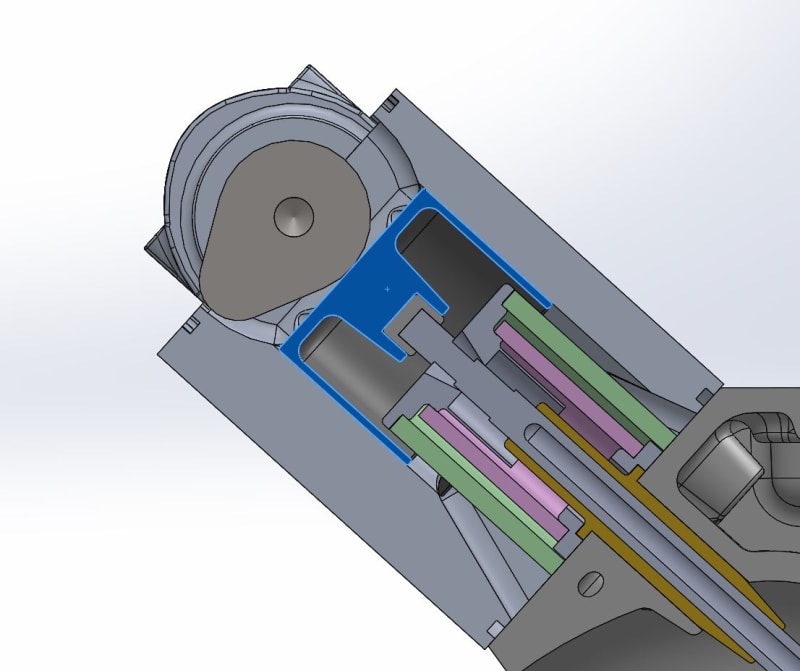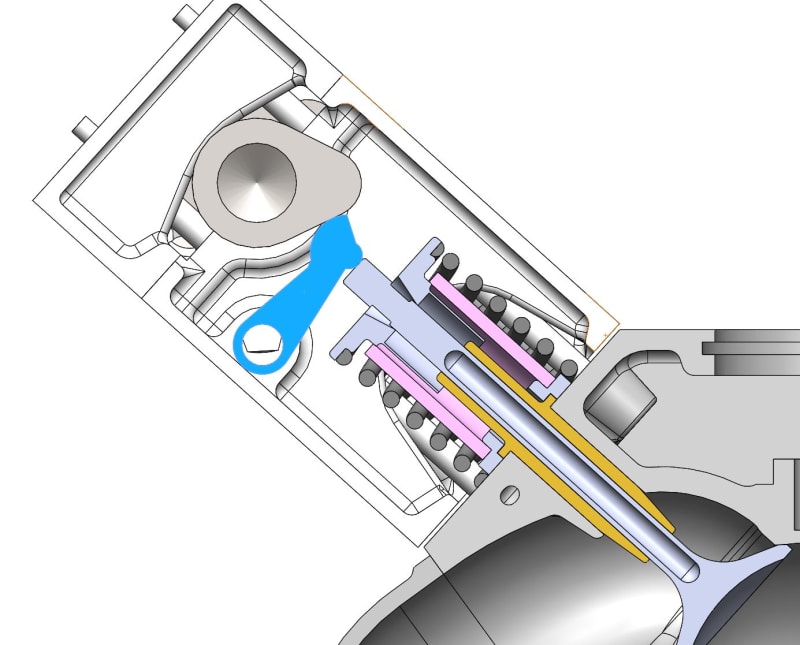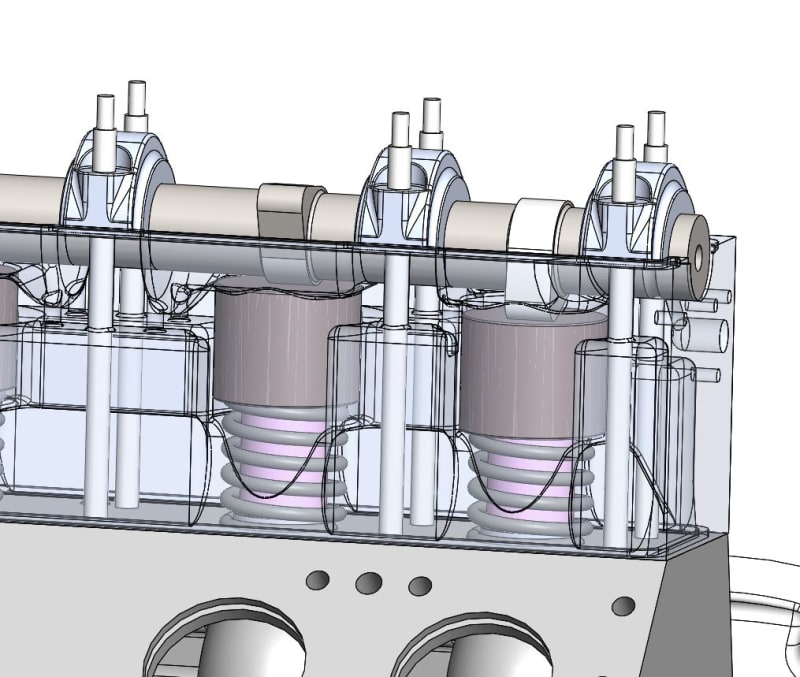Though it's common to select a softer grade for the lower cost component, I wouldn't go all the way down to aluminum driven by nitrided steel. If I were making custom parts to mate with an off-the-shelf cam, I would actually strive to make the custom part harder because it's going to be more costly to replace.
Per Newman Cams (and as noted by BrianGar above),
the best steel for cam shafts is EN40B aka
722M24 aka
31CrMo12(1.8515). This steel has a hardness spec of
276-339 HB which is
29-36 HRC. I can't find any suppliers of small quantities, so you might want to consider a more readily available alternate.
You can buy one of the hardest steels made, [link en.wikipedia.org/wiki/Maraging_steel]Maraging 350[/url], from
onlinemetals.com. It machines like 4340 in the annealed state but attains hardness of
58 HRC (!) once heat treated and aged. It also has superior toughness, and doesn't significantly change dimensions during heat treatment and aging. It's costly, but you don't need much, and you could always switch to the cheaper 31CrMo12(1.8515) if you ever want to built in quantity.
H-13 Tool Steel has hardness of up to 53 HRC and is available from
onlinemetals.com for about half the cost of Maraging 350, but it's much more difficult to machine than Maraging 350. Its bulk cost advantage will be offset by its machining cost to some extent.
As for Formula One valve train design, you might find Honda's paper [link f1-forecast.com/pdf/F1-Files/Honda/F1-SP2_09e.pdf]"Development of a Valvetrain for Formula One Engine"[/url] useful.



